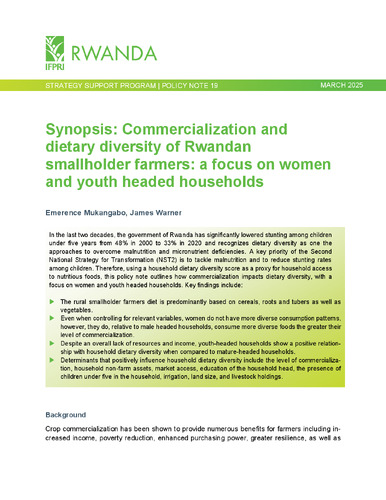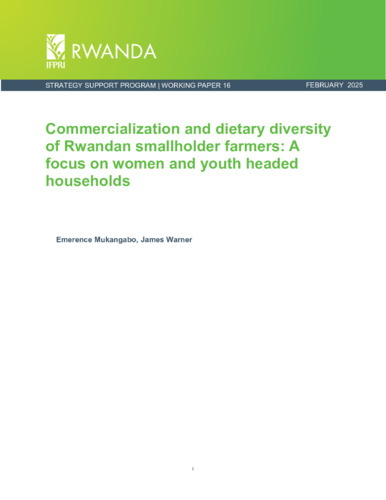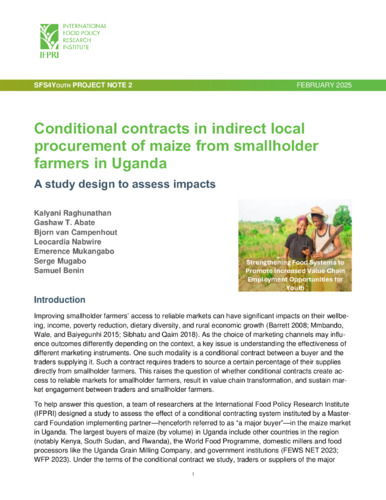Commercialization and dietary diversity of Rwandan smallholder farmers: A focus on women and youth headed households
Using a household dietary diversity score as a proxy for household access to nutritious foods, this paper assesses the relationship between commercialization and nutritional outcomes of Rwandan smallholder farmers, with a particular emphasis on women and youth headed households. The results indicate that commercialization has a strong, positive effect on household dietary diversity but mixed results between sub-categories of households. For instance, male-headed households have higher overall dietary diversity compared to female-headed ones, but much of that variation can be explained by higher asset ownership and income. However, relative to male headed households, female headed households appear to respond to increasing levels of commercialization by consuming more diverse foods, an insight that could be useful for targeted interventions. Importantly, youth-headed households exhibit greater household dietary diversity than those households headed by older individuals, despite having both lower levels of assets and crop commercialization. General determinants that positively influence household dietary diversity include the level of commercialization, household non-farm assets, market access, education of the household head, the presence of children under five in the household, irrigation use, land size, and livestock holdings. The goal of this research is to enable policy makers to better identify the drivers of household dietary consumption, particularly among more vulnerable households, and how to encourage a more diverse diet for better nutritional outcomes.
Authors
Mukangabo, Emerence; Warner, James
Citation
Mukangabo, Emerence; and Warner, James. 2025. Commercialization and dietary diversity of Rwandan smallholder farmers: A focus on women and youth headed households. Rwanda SSP Working Paper 16. Washington, DC: International Food Policy Research Institute. https://hdl.handle.net/10568/173175
Keywords
Africa; Eastern Africa; Sub-saharan Africa; Nutrition; Dietary Diversity; Commercialization; Gender; Youth; Households; Smallholders
Project
National Policies and Strategies







